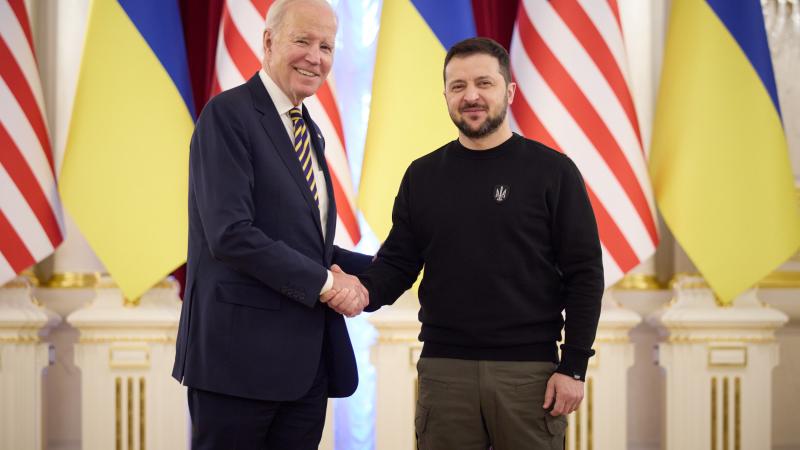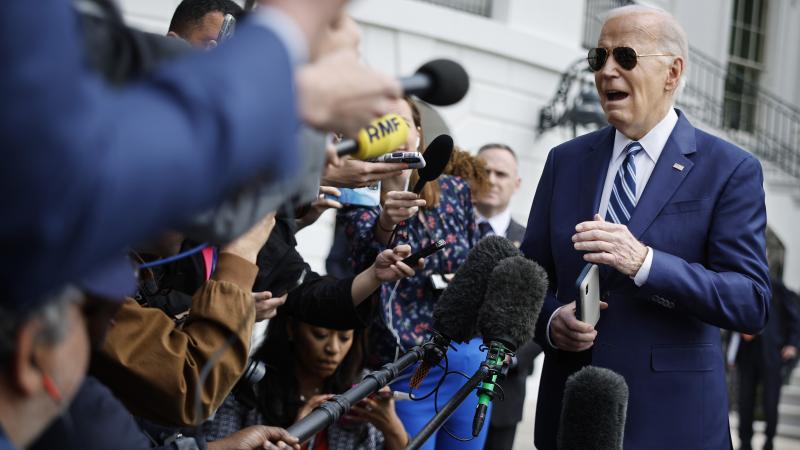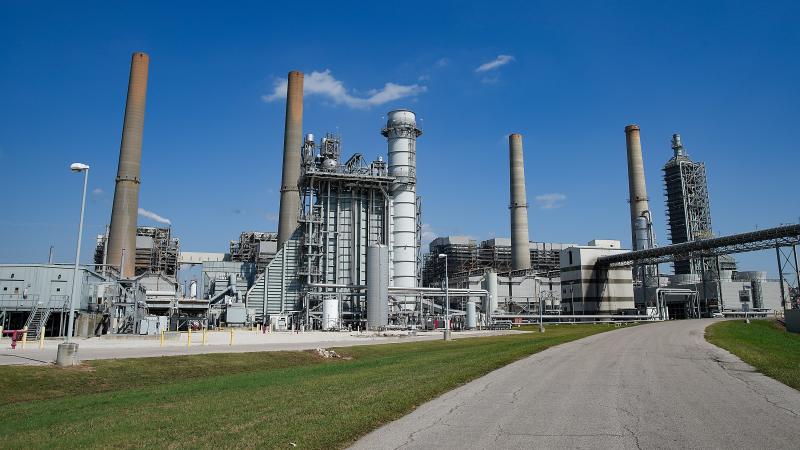Iran could already have nuclear weapons, warns congressional advisory report
New report on Iranian electromagnetic pulse threat lays out case for regime having capabilities to attack U.S. homeland.
Iran may already possess nuclear weapons and the ability to attack the U.S. homeland, according to a new report by the head of an official congressional advisory board.
"Washington's bipartisan consensus is that Iran does not yet have nuclear weapons or missiles capable of threatening the United States with nuclear attack," writes Peter Vincent Pry, executive director of the EMP Task Force on National and Homeland Security. "But some Israeli analysts and some highly credible U.S. experts disagree with the 'consensus view.'"
Pry's report — "Iran: EMP Threat: The Islamic Republic of Iran's Military Doctrine, Plans, and Capabilities for Electromagnetic Pulse (EMP) Attack" — argues that much of the data undergirding the assumption that Iran doesn't currently have nuclear weapons is incomplete.
"Assessments that Iran does not yet have nuclear weapons assume erroneously: our intelligence is perfect, Iran's civilian nuclear program is all there is, and no clandestine nuclear weapons program exists in Iran's numerous underground military facilities — including unaccounted uranium and plutonium facilities for fueling nuclear weapons, as in North Korea," the report cautions.
Pry notes that prominent experts have assessed that Iran already has nuclear-armed missiles, including former CIA Director R. James Woolsey, former acting NASA Administrator William R. Graham, who also served as President Reagan's science adviser, former National Intelligence Council Chair Fritz Ermarth, and Ambassador Henry F. Cooper, who was director of the Strategic Defense Initiative and chief negotiator at the Defense and Space Talks with the Soviet Union.
Last year, the four men and Pry coauthored an article arguing that Iran "probably already has the bomb," listing several reasons why the U.S. defense and intelligence communities are underestimating how advanced Iran's nuclear program really is.
When America's Manhattan Project during World War II was at the point where Iran's nuclear program was in 2003, "the U.S. was only months away from making the first atomic bombs," they wrote.
U.S. intelligence assessments that Iran "suspended its nuclear-weapons program in 2003 are contradicted," the group warns, "both by Iran's nuclear archives, stolen by Israel in 2018, indicating Iran's ongoing nuclear-weapons program (reported at several sites in 2006, 2017, and 2019) and by Iran's rapid resumption of enriching uranium to prohibited levels. This demonstrates an existing capability to quickly produce weapons-grade uranium."
Nuclear experts given access to Iran's nuclear archive captured by Israel have assessed that Iranian "nuclear weaponization efforts" didn't stop after 2003 and were never fully halted.
In 2015, retired Army Gen. Paul Vallely said in an interview that Iran already had nuclear weapons and that decades of intelligence reports show Tehran has "gotten the support from Russia, from North Korea, and from China."
The U.S. intelligence community continues to assess that Iran is not currently undertaking the key nuclear weapons development activities that would be necessary to produce a nuclear device, according to the Office of the Director of National Intelligence's unclassified Annual Threat Assessment report.
In recent months, the White House and various U.S. officials have said that Iran is "weeks away" from having enough fissile material for a nuclear weapon.
Of course, Iran already having a nuclear weapon would be a game changer for the U.S. as the Biden administration continues to push to revive the 2015 Iran nuclear deal, which placed temporary curbs on Iran's nuclear program in exchange for the large-scale removal of sanctions on Iran.
The stated purpose of the accord is to prevent Iran from building nuclear weapons. Former President Trump withdrew the U.S. from the deal in 2018, arguing it hurts American strategic interests. President Biden has made reviving it a top priority.
When asked whether reports of Iran already possessing nuclear weapons have factored into the administration's efforts to revive the nuclear deal, a State Department spokesperson told Just the News that a "mutual return to full implementation of the [agreement] is the best available option to restrict Iran's nuclear program and ensure it remains exclusively peaceful."
In his new report, Pry points to the work of Reza Kahlili, whom he describes as "the only CIA operative to successfully penetrate the scientific wing" of Iran's Islamic Revolutionary Guard Corps (IRGC).
Kahlili, who uses a pseudonym, has published multiple articles arguing Iran is on the verge of obtaining nuclear weapons if it doesn't have them already.
"Iran is a threshold nuclear weapons state," Pry concludes. "Prudence would dictate regarding Iran as a de facto nuclear threat."
One aspect of this nuclear threat that's received too little attention, according to Pry, is the prospect of Iran launching a high-altitude electromagnetic pulse (HEMP) attack against the U.S. Such an attack would involve detonating a nuclear weapon over the U.S. homeland, perhaps via satellite, creating an electromagnetic pulse that could take out large parts of the electric grid and create a mass blackout.
"Iran has not demonstrated a military intercontinental missile equipped with a reentry vehicle capable of penetrating the atmosphere, accurate enough to strike a city," writes Pry. "Yet a HEMP attack does not require a reentry vehicle or accuracy."
Adversaries can successfully launch an EMP attack without having a high level of nuclear or military sophistication, according to experts. In recent years, Iran has been making progress on satellites and, according to the report, has used medium-range missiles to test for EMP attacks.
Pry cites an official Iranian military textbook that endorses not only a nuclear HEMP attack against the United States but also deception to conceal nuclear weapons in violation of international agreements.
The report also notes that Iran has taken steps to harden its own critical infrastructure to protect against a HEMP attack, possibly reflecting its desire to be prepared to conduct such an attack itself in the future.
"If Iran acquires or develops nuclear HEMP attack capabilities, Iran's targets or that of its terrorist proxies will most likely be the populations of America and Israel," the report says. "The Congressional EMP Commission estimates that, given U.S. current unpreparedness, within one year of an EMP attack that causes a nationwide blackout, two-thirds or more, up to 90%, of the U.S. population could perish from starvation, disease, and societal collapse."
The Congressional EMP Commission, a group of leading scientists, engineers, and security experts, was established by Congress in 2001 to assess the threat to the U.S. from an EMP attack and identify steps that should be taken to protect the country.
















